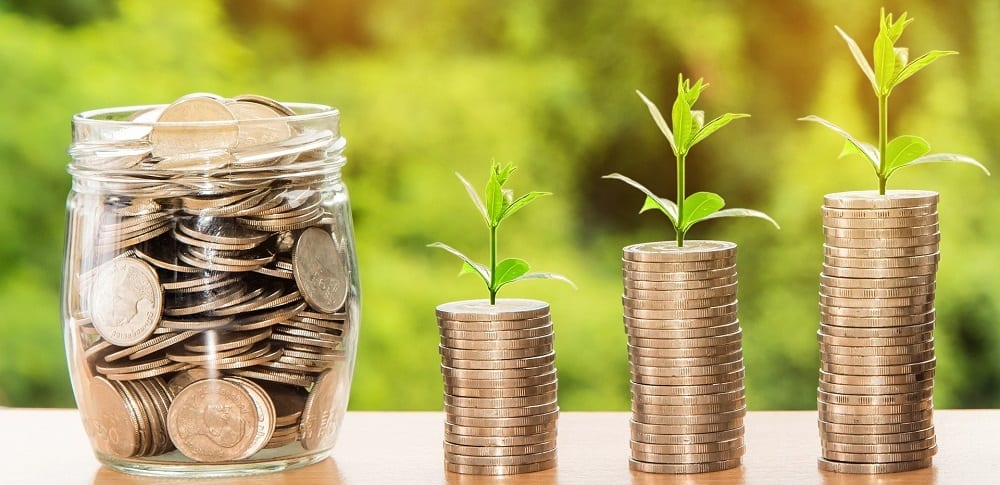The difference between growth and development can be divided into two parts – growth and development in a human being and growth and development in economics.
Difference Between Growth And Development In Human Beings
The growth in a human being refers to the physical changes of a particular human being, that is, change in his height, growth of facial hair, etc. Growth is a change of physical aspects in an organism, whereas, on the other hand, development of a human being means an overall change of a human being, or it can be said that development of a human being means a progressive change in a human being.
Progressive changes include mental changes in a human being, to put it in a nutshell, development in a human being is the structural and the functional changes that take place in his body over time. The major development between growth and development is that growth continues till puberty, whereas on the other hand, development continues till the death of a person; development is a lifelong process that takes place in the body of a person.
Development in a human being is identified when changes in IQ are recorded. A human being has to face various challenges in life, ao his development is an essential part of his life. His computing skills, communication skills, unique position to grasp and retain complex information, etc. are skills that develop a human being.
Also Read: Relationship Between Banker And Customer
The major difference between growth and development is that growth is quantitative, whereas development is both quantitative and qualitative. Growth is bound by a person’s age; on the other hand, development is not bound by age.
If a person has enough courage and commitment, he can develop himself even after the age of 30. Skills learned, such as reading or arithmetic, are indicative of one’s developmental changes.

Factors Affecting Growth And Development Of An Individual
1. Environmental Factors
The development of a human being starts right from his birth, so it is crucial for an individual to provide a suitable environment for his child’s development.
Development does not only take place in a child only by studying at the school; other aspects such as playing and interacting with other kids are also some of the important aspects of a child’s development. According to scientists, play improves memory, intelligence, and learning, making it easier for the child to recall learned concepts taught at school or at home.
Stable income is also one of the most important aspects for a child’s development; it is pretty obvious that there are needs of the child that need to be fulfilled to make sure that they have good growth and development; also basic needs such as food, clothes, and shelter must be met as these are the most basic things that a human needs for his growth and development.
Having a stable income is also important because a child needs good nutrition for growth and development, so it is very important for a child to have a diet that includes carbohydrates, proteins, and vitamins.
Vitamins A, B, and C help in the development of a child’s brain; a good and balanced diet also helps in the skeletal and muscular growth of a child. In short, a good and balanced diet offers unlimited benefits for a child’s growth.
Financial stability is also another important aspect of the growth and development of a human being. Children from financially stable families attain more healthy growth and development as the children whose family are financially stable they do not have any stress.
They also get a proper and balanced diet on the other hand children whose families are not financially stable may not get a proper diet and may have some of the other stress that might lead to stunted growth of a child.
With good financial stability, an individual can provide it’s a child with a good education, which will transform his child and his future.
2. Educational Standards
It is crucial for the parents to develop a habit of reading to prepare them psychologically. Parents who encourage literacy development tend to have a smarter child than those who do not encourage literacy development in their child.
Also, it is very important for the parents to find the best possible educational institution for their child so that their child has a good company and a good education.
Mental health is something that is often overlooked by everyone. If a child does not have a nurturing surrounding, then he will not be able to develop in that particular environment; parents must be supportive to the child and must encourage their child to take part in any hobby; creating a supportive environment is a must for good development of a child.
3. Interpersonal Relationships
The presence of a social network in one’s family can influence the way one’s child addresses the crowd and develops his relationship with elders and people around him. Each and every child is unique in its own way, and the parent needs to figure out the way they should be parenting their child.
A child’s behavior and his conduct reflect the values taught by the parents the way they’ve been parenting their child. Strict parenting might not help the child, as it is seen in many cases that the child whose parenting has been a bit strict has turned out to be more notorious.
Though every child is different, they all need a supportive environment and supportive parenting. Every child is encouraged by their parents to participate in the hobbies they like and study what they love to.
The major difference between growth and development is that growth involves nutrition and a balanced diet, but development involves a lot more than just providing proper nutrition and a balanced diet as it is a life long process that ends only after the death of a person, an individual needs to develop himself from time to time throughout his life.

Difference Between Growth And Development In Economics
Economic growth is measured by the GDP (Gross Domestic Product) of a country; the growth of an economy means an increase in the national output of a country. Gross Domestic Product is abbreviated as GDP; it is the total value of goods and services produced in a particular country. Just as the physical changes are identified as the growth in a human being, in the same way, the Gross Domestic Product is identified as the growth of an economy of a country. If a country has to increase its gross domestic product, then it will have to develop its economy.
Economic Development
Economic development deals with a wider range of statistics as compared to GDP as calculation of economic development is not as easy as GDP; it involves various factors like:
- The living standard of the citizens
- GDP per capita
- Number of doctors per thousand population of the country
- Life expectancy
- Environmental Standards
- Literacy and Education Standards
The living standard of citizens is analyzed by looking at the surrounding where they live and how they live, life expectancy is also an important factor in the calculation of the economic growth of a country. If the environment and health of the people are up to the mark, life expectancy will be more, but if the environment and the health of people in a country are not good, then the life expectancy will be low, a country with a high crime rate will also have a lower life expectancy, or it can be said that the life expectancy will be below average in a country where the crime rate is high.
Economic growth can harm the environment because the higher the output, the more the pollution. If deforestation takes place for setting up of industries, that will surely have an adverse effect on the environment for a very long term.
Literacy and educational standards mean how many people in a country are literate and how many of them have a basic education. It also includes whether people in a particular country can afford education for their children or themselves.
Literacy standard is the basic factor that leads to economic growth and development; the more the literacy high the economic growth, the low the literacy low the economic development.
India is a country that has a very high scope of development as it has huge manpower, but the drawback is the literacy rate. The literacy rate in India is low, and that is the main reason why India is still a developing country.
Transport and infrastructure are also some of the most basic factors that lead to economic growth and development. Suppose a country does not have the basic infrastructure to produce something and transport to transport goods and services to various places in the country.
In that case, the economic development will not take place as it lacks basic transport facilities and infrastructure for the development. It is also very important for the areas which may be cut off or isolated from the main areas.
The quality of living is also calculated in economic growth as a better quality of living in a country reflects a countries employment rate and average earnings of the people in that country. Human Development Index is one of the several different measures of economic development.
The Human Development Index includes:
- Income Index
- Education Index
- Life Expectancy Index
Economic Growth In Developing Countries
The major difference between growth and development is that development includes many factors other than just the numbers. In developing countries like India, it is possible to have economic growth without development; this situation in developing countries could occur due to:
- A small percentage of the population gets affected by the economic growth; for example: If India produces more diamonds than any other country, then the company which owns the major chunk of the diamond industry will be benefitted but not the whole population.
- Corruption is one of the main reasons why economic growth does not affect most of the population as the politicians and ministers flood their swiss bank accounts with the benefits of growth.
- Environmental problems may also increase as more and more toxic chemicals will be produced by the industries, which are ultimately discharged into the water bodies, which leads to water pollution. Further, it can also lead to severe health problems.
- If a country spends its money more on its defense forces, then the GDP will surely increase, but if this is done at the cost of education and health care, it might lead to low living standards.
In a nutshell, the difference between growth and development of a countries economy is that the growth is only quantitative, whereas, on the other hand, development is both quantitative and qualitative; if a country wants to become a developed nation from a developing nation, then that particular nation should pay more and more attention towards its economic development rather than economic growth.
Having huge manpower does not necessarily mean that the economy will develop; to use the manpower to its maximum potential, the people need to be educated. They must not be counted just as labor; they should be counted as skilled labor.
A country with improved overall health and academics for the entire population is likely to have better economic development than other countries that lack these factors.
Frequently Asked Questions
Q1. What is the difference between growth and development in humans?
Ans. Growth is physical changes in an individual, whereas development means a progressive change in a human being.
Q2. What are growth and development?
Ans. Development is a lifelong process, whereas growth is bound by age.
Q3. What is the difference between growth and development in economics?
Ans. The difference between growth and development in economics is all about numbers and GDP (Gross Domestic Product), whereas on the other hand, the development includes aspects like GDP per capita, living standards, life expectancy, income index, education index, etc.
